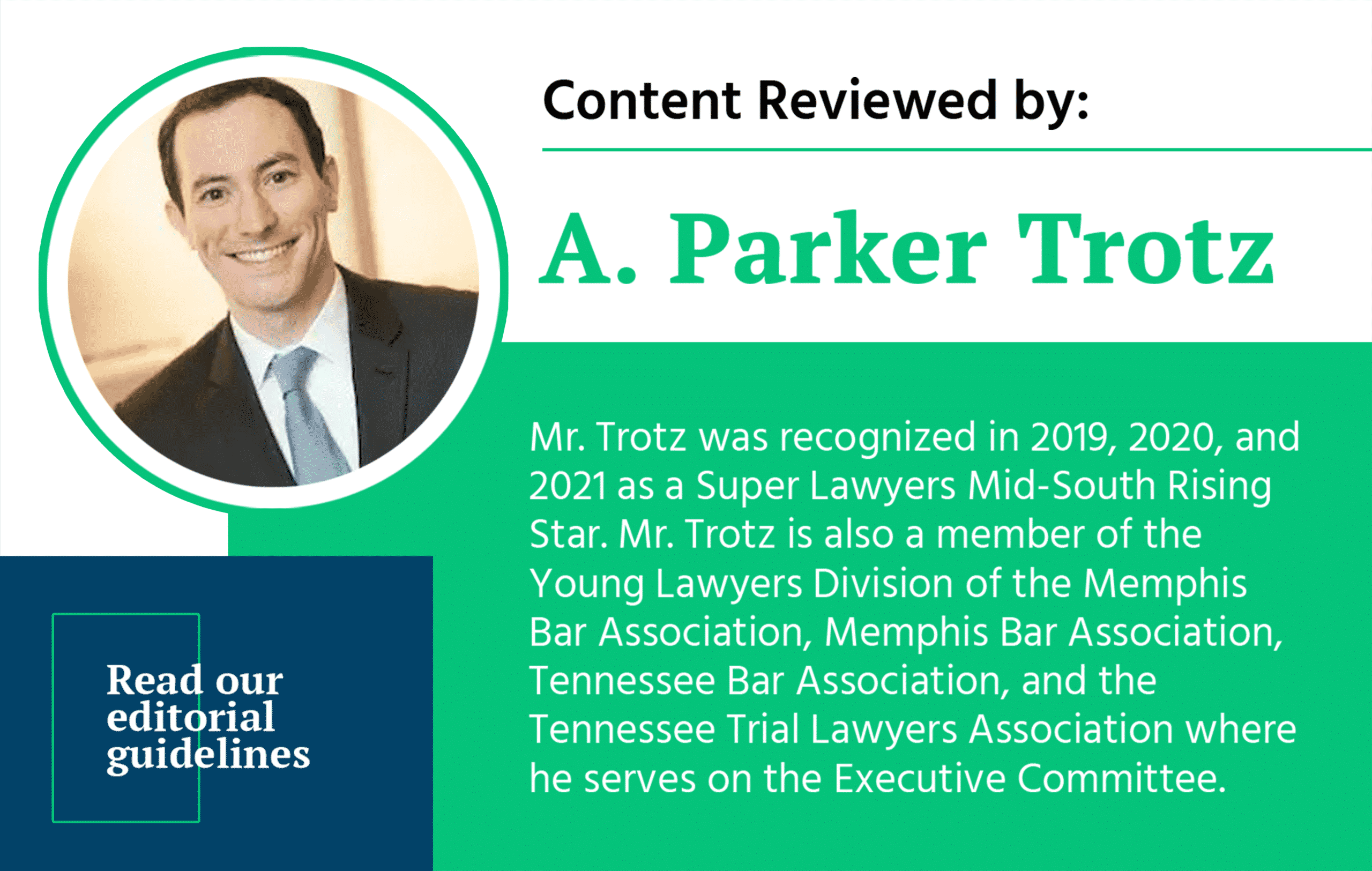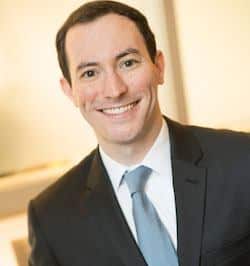
Knoxville Inadequate Security Lawyer




Mr. Trotz was recognized from 2019-2023 as a Super Lawyers Mid-South Rising Star. Mr. Trotz is also a member of the Young Lawyers Division of the Memphis Bar Association, Memphis Bar Association, Tennessee Bar Association, and the Tennessee Trial Lawyers Association where he serves on the Executive Committee. READ OUR EDITORIAL GUIDELINES
Mr. Trotz was recognized from 2019-2023 as a Super Lawyers Mid-South Rising Star. Mr. Trotz is also a member of the Young Lawyers Division of the Memphis Bar Association, Memphis Bar Association, Tennessee Bar Association, and the Tennessee Trial Lawyers Association where he serves on the Executive Committee. READ OUR EDITORIAL GUIDELINES
Mr. Trotz was recognized from 2019-2023 as a Super Lawyers Mid-South Rising Star. Mr. Trotz is also a member of the Young Lawyers Division of the Memphis Bar Association, Memphis Bar Association, Tennessee Bar Association, and the Tennessee Trial Lawyers Association where he serves on the Executive Committee. READ OUR EDITORIAL GUIDELINES
Business and property owners have a duty to keep visitors safe from harm, including injuries from a third party’s foreseeable criminal actions. If you or a loved one was harmed due to criminal activity on a commercial or residential property, contact an inadequate security lawyer at NST Law in Knoxville so we can thoroughly investigate your case, identify the negligent parties, and help you get the compensation you deserve.
Members of the Knoxville community deserve to be safe on someone else’s property, whether it’s an apartment complex, nightclub, shopping mall, convenience store, or office building. Business and property owners or managers have a duty to protect people on their premises against harm, including injuries caused by crime.
When property owners know or should know about the threat of crime on their property and fail to address it with the appropriate level of security, they open themselves up to legal liability. If you were a victim of a crime on a commercial or residential property, contact a Knoxville inadequate security lawyer at NST Law so we can identify the negligent parties and fight for the compensation you deserve.
Table Of Contents
- Why Choose the Inadequate Security Knoxville Lawyers at NST Law
- The Legal Process for Inadequate Security Cases
- Understanding Inadequate Security in Knoxville
- Legal Responsibilities and Liabilities
- Compensation and Damages
- Preventing Inadequate Security Incidents
- Our Inadequate Security Lawyers in Knoxville Will Fight for You
- Inadequate Security in Knoxville FAQs
Why Choose the Inadequate Security Knoxville Lawyers at NST Law
The negligent security lawyers at NST Law are firmly committed to supporting and advocating for our clients. Our Knoxville attorneys fight from start to finish and have used their decades of combined experience, knowledge of the law, and well-honed litigation skills to secure over $2 billion in settlements and verdicts for clients.
We have the resources and experience to take on business and property owners and their insurance companies. Inadequate security cases require strong investigative work to prove the crime was foreseeable and security measures were lacking. Our Knoxville personal injury lawyers are recognized as Super Lawyers and have a 10.0 Superb rating from Avvo.
We take great pride in client testimonials praising our work ethic and tenacity, and we bring everything we have to every case. If you were harmed due to inadequate security, contact a negligent security lawyer at NST Law in Knoxville to help you collect maximum damages.
The Legal Process for Inadequate Security Cases
There are several steps in an inadequate security lawsuit:
- Investigation to determine if the crime against you was foreseeable and if security measures were lacking
- Identification of all negligent parties, including the property owner, business owner, management company, or security company
- Notification to the court and negligent parties of your intent to sue
- Obtaining information from the other party in the discovery process
- Settlement negotiations or going to trial
An inadequate security attorney at NST Law in Knoxville will answer your questions at every step, prepare you for depositions or testimony, and fight vigorously on your behalf in settlement negotiations, any necessary hearings, or a trial.
Understanding Inadequate Security in Knoxville
Business owners are liable for crimes that occur on their property if they don’t take reasonable security measures to protect individuals from foreseeable harm. Inadequate security claims aim to hold negligent property owners liable in these situations. Victims of robberies in parking lots, shooting at apartment complexes, and sexual assaults at apartment complexes in Knoxville are just some examples of people who deserve compensation if the crimes were foreseeable and security was lacking.
An experienced inadequate security lawyer at NST Law in Knoxville will thoroughly investigate the area where you were harmed to look for problems, such as:
- Lack of surveillance cameras
- Lack of security guards
- Poor lighting
- Broken locks on doors, windows, and fences
- An improper response system to criminal threats
We will also determine if more than one party can be held responsible for your damages due to a failure to maintain a secure environment.
Legal Responsibilities and Liabilities
Inadequate security falls within the category of premises liability for land and business owners. To prevail in your negligent security lawsuit, your attorney must prove that the owner had a duty to protect you and that they failed in that duty. Your lawyer must also prove that you were harmed by a crime the property owner failed to foresee and prevent through reasonable measures.
Tennessee law doesn’t dictate exactly how many previous crimes must have occurred in a particular area for future crimes to be foreseeable. It also doesn’t specify which security measures property owners must take.
However, the Tennesee Supreme Court ruled that while businesses don’t have to guarantee the safety of visitors, they do have to take reasonable steps to protect them. Generally, the business must know or have reason to know that criminal acts are likely to occur on the premises, posing an imminent probability of harm to a customer. The court specifically mentioned the number and frequency of crimes in the immediate area as indicators of foreseeability.
Compensation and Damages
You can collect economic and non-economic damages in a negligent security lawsuit, such as:
- Medical bills
- Rehabilitation expenses
- Pain and suffering
- Emotional distress
- Property damage
Our attorneys will thoroughly investigate your case to prove foreseeability and negligent security measures and fight for maximum compensation. We have over 30 years of combined experience in personal injury law and never back down during settlement negotiations or in court.
Preventing Inadequate Security Incidents
Proper security helps ensure public safety and protects against loss of business and civil liability. There are several proactive steps commercial property owners can take to help prevent crime, such as:
- Keeping up on crime rates in the area
- Developing a system to document and disseminate information about crime on their premises
- Increasing lighting, cameras, and security personnel in dangerous areas
- Inspecting and securing entry points, such as fences, windows, and doors
- Keeping areas well-tended so that criminals cannot hide behind large bushes or easily sneak up on visitors
- Working with other area business owners and the police to understand and combat local crime
Our Inadequate Security Lawyers in Knoxville Will Fight for You
If you were harmed by a crime on a commercial property, you deserve an experienced legal team to thoroughly investigate your case and fight for maximum compensation.
Contact the negligent security attorneys at NST Law in Knoxville for a free consultation by filling out our online form or calling us at 865-518-7869.
Inadequate Security in Knoxville FAQs
Inadequate security lawsuits are claims under personal injury civil laws. In Tennessee, you have one year to file a personal injury claim after the date of the incident.
If you believe that your loved one died from a crime enabled by inadequate security at a place of business, you can file a wrongful death claim. An NST Law wrongful death attorney can help you determine who can sue and how to maximize your compensation.
Contact the police immediately, and try to contact the business owner or the person in charge to complete a report. If you feel safe enough and are able, take pictures of the area where the crime occurred and note the lighting and potential security issues, such as holes in fences and broken locks.
The total compensation in your lawsuit depends on the extent of your injuries, the medical care you need, your lost wages, and non-economic damages. It’s difficult to predict what a case is worth, but your NST Law negligent security lawyer will fight to maximize your compensation. We have the resources to consult with expert witnesses to quantify your damages, including vocational experts, doctors, and economists.
TYPES OF ACCIDENTS
- Distracted Driving Accidents
- Driver Fatigue Accidents
- Drunk Driving Accidents
- Failure to Yield Accidents
- Fatal Accidents
- Head-On Collisions
- Hit and Run Accidents
- Rear-End Collisions
- Reckless Driving Accidents
- Speeding Accidents
- Texting and Driving Accidents
Testimonials
Settlements/Verdicts
$1,000,000.00
Our client was walking in a Tennessee gas station parking lot when he was struck by a commercial concrete truck. He broke both of his legs and underwent extensive medical treatment.
$1,400,000.00
$2,200,000.00


